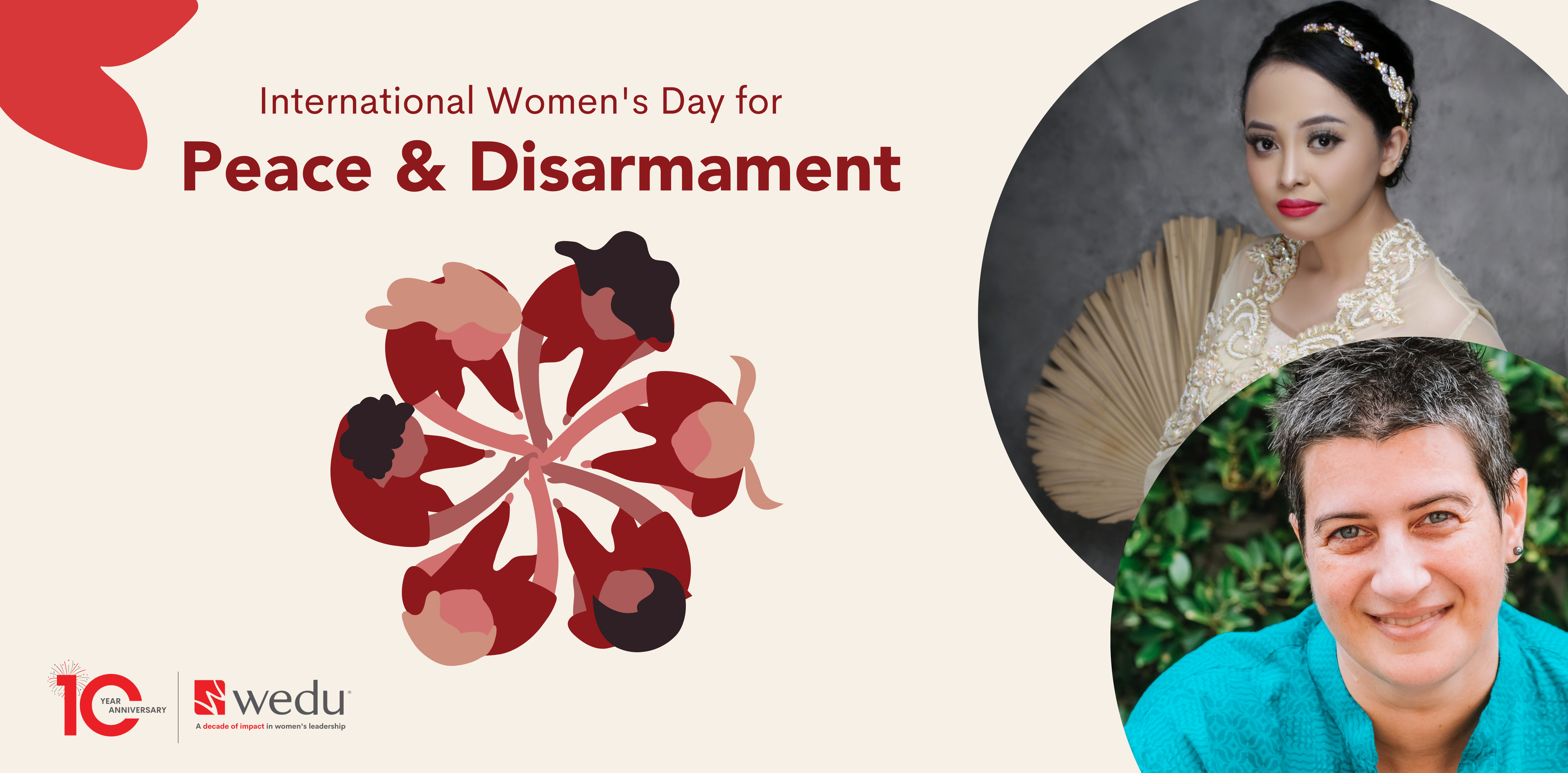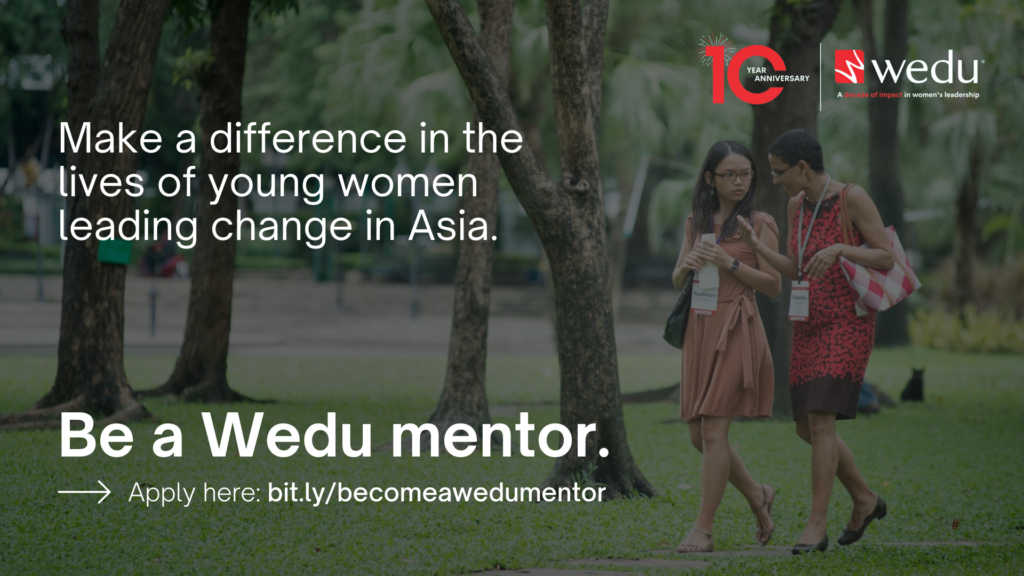
25 May Amplifying equal voices for peace: Insights and lessons from women peacekeepers and mentors in Asia
This week, we celebrate International Women’s Day for Peacebuilding and Disarmament to shine a light on the crucial role women leaders play within the peacebuilding field and the work they continue to do for the generations after them through mentorship.
In commemoration of this day, we got to chat with two mentors working in Peacebuilding from our leadership programme, the YSEALI Women’s Leadership Academy, anchored on the theme, “Rise for Human Rights”.
Jenn Weidman, based in Thailand and Isti Toq’ah from Indonesia are both founders of organisations heavily involved in Peacebuilding. Space Bangkok is a consultancy firm that works directly with NGOs to motivate resilience and mental health among peacebuilding workers, in her words, “caring for the carers”. PANDAI Indonesia or Pendidikan Damai Indonesia is a peace education community managed by Isti that uses local wisdom as its framework.
Here’s what they learned from their peacekeeping and mentorship journeys.
Why we need women’s voices in peacekeeping
Humanitarian work, peacekeeping and negotiation often require equal voices. So it’s no surprise that historically, some of the most successful peace agreements have been implemented by women.
Jenn says, “Peacebuilding is for everyone. And you can’t do that by only involving a portion of the world; it’s just impossible. I think in that way, we all need to be involved; it has to be fully inclusive. Women need to be there. That’s key in a lot of ways to peace. We all want peace, and we know that in order to do that, we need to involve everybody.”
Isti spoke on how war has affected women’s voices, especially in regions most affected like Afghanistan. “It’s very sad to see [inequality] in peace bodies in history, especially with women of colour like us. But this state always tries to manipulate and control women, especially as weapons of war. How can you invoke women to talk about themselves if the body and the costume is still under control? There’s a lot of work to do.”
Safeguarding the mental health of peacekeepers
When it comes to the most critical issues that need to be addressed in peacebuilding, Jenn spoke on the importance of resilience and how important it is for people to take care of themselves first before taking care of others. “It’s in the structures; Underfunded, overpaid, overworked, underappreciated. There are not a lot of people who care for the careers, and I think that issue of resilience is huge. A couple of years ago, there was research done only in the humanitarian sector, and the statistics are staggering with the percentage of people who have mental health impacts which the work they’re doing and then there’s a percentage that doesn’t get treated. So basically, we’re hoping on the people that save the world, but they’re functioning on much less than their full capacity.”
Isti also touched on how critical it is to have peace within you before leading or serving others. “It really reminds me that you need to be a healthy, peaceful member of society. Then you can contribute more to your community. Imagine if everybody took time to take care of themselves. How beautiful and how peaceful our community and our country would be. Nobody would remember to start war or conflict. And I believe even in higher-level positions like the decision-makers, Presidents or Prime Ministers if they can have peace with themselves. They will not have the time to make wrong decisions.”
How they support young women through mentorship
As mentors, they try and play a part in encouraging future leaders in their journey to becoming those empowered decision-makers.
Isti mentioned, “When I was a child, nobody told me this [that it’s okay to be at peace with yourself and be proud of your work]. And now I’m telling my students that they can talk about themselves. I’m very grateful since I started mentoring with my first mentee. I always position myself as a partner of discussion and also a friend because I see that. Brilliant women.”
“We support women entrepreneurs, and one of the reasons why I think it’s important for that kind of engagement is because there are already a lot of places where men support men. And there are fewer places where women are supported.” Jenn said.
Hopes for the next generation of women peacekeeping leaders
Jenn’s advice for future leaders in the peacebuilding field is, “Look after yourself, and as one of my mentors said, “This is a glass half full profession.” Now, a lot of people go back and forth around hope, but I really do think that you need to be hopeful about the future. You need to be able to hold on to that.”
Isti’s advice is all about claiming your space, “Don’t wait for an invitation to talk or make your own stage. Bring your own chair starting today. We don’t know how long we will live, right? I created my own community for five, or six years now because I don’t want other people to invite me first. This is my own microphone. This is my own chair and you are invited together on my stage… So if you are tired of knocking at many doors, start making your own. Don’t wait for others to open the door for you.”
Help us amplify women’s voices in Asia — With so much going on in the world, it’s important to stop and take time to celebrate women peacekeepers and mentors who make lives better across the world. You can also support a young woman’s leadership journey by becoming a mentor at Wedu. Or become a mentee yourself and receive support for your journey.



Sorry, the comment form is closed at this time.